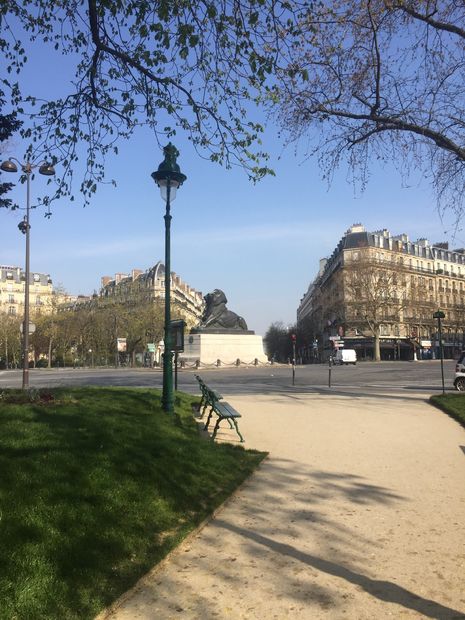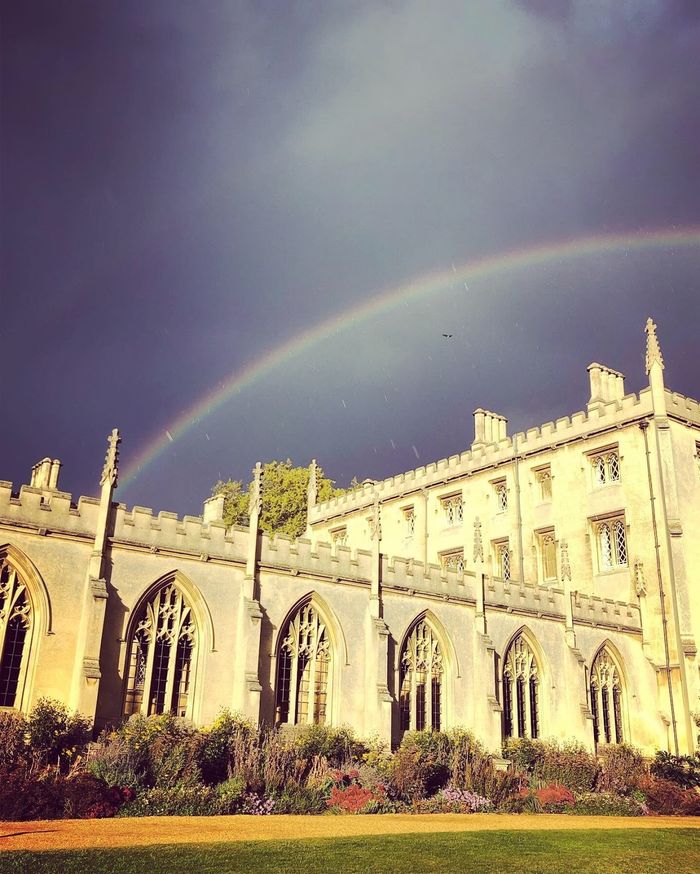Moving at a slower pace
At home in Paris, Juliette Guéron-Gabrielle writes on the distortions of time amidst lockdown and learning to move at this new pace

In Cambridge, just like in high-school, I was often late. Late to lectures, late to formals…Twice I had to ask the caterers to let me into our Formal Hall despite its closed doors (Selwyn Caterers, thank you for being so lovely). I once caught a train from Cambridge to London with exactly two minutes to spare.
Going back to France at the end of term to face a complete lockdown was quite a shock; I am having to learn to live without being in a rush, without having anything to be late for. I am experiencing an alternative passing of time – no more sleepless nights spent talking or clubbing, no more pacing across the City, no more struggling to balance the impossible three, a social life, academic work, and sleep.
Confinement forces me to think about time differently. It enforces similarity and slowness upon my days. It forces me to go to bed and wake up at a reasonable time. I grew up in a lenient household, with parents that let me come back home at the hour I wanted to. These past years, I remember times on the earliest Métros when me and my friends would look at the passengers and wonder if they were on their way to work, or headed to bed like we were. Student life exacerbated my tendency to live by a deconstructed schedule (as it did for everybody I know).
“For the next month or so, hours are going to be less filled, less exciting. Instead of fighting this reality, we should accept it.”
In Cambridge, I loved the idea of being surrounded by people with shifted routines. I liked coming back to my college past midnight and finding people in gyps; I liked late night diners and early morning Van of Life chips. When I had a minor health issue, two of my friends cycled to A&E to keep me company - it was 2AM on a Sunday, and they were still up, just because. Another time, at the end of term, I finished packing my room at 9 PM and left for London. I arrived there at midnight and joined my best friend in the student accomodation she was hanging out at. People only looked half surprised to see someone dragging an oversized suitcase come in.
I like the freedom that comes with student life; I like its spontaneity and lack of schedule. Now in confinement, I am robbed of the possibility to have bad time management. I am up at 9 AM. And, having no distractions, I even read for my coursework.
I have, however, come to enjoy some aspects of confinement. I enjoy the slowness of it. Lockdown reminds me of a younger age, when my family was the epicenter of my life. Now, just like then, I get bored and bug my brother. I talk to my parents. I read. I cook. I go to the shops with my ‘Attestation’ and am getting used to policemen checking its validity. I Skype friends and see their families gravitating in the background, courtesy of our small Parisian apartments.
I enjoy the online content confinement produces: the friends brave enough to cut their own bangs, the endless stream of Instagram lives... My brother makes me listen to guitar riffs and experimental rock intros and I pretend to see how revolutionary they are. I complain about confinement, and I listen to people complain about it. I admit to playing with the law; the one day I went out for a walk, I ventured a few meters beyond the 1 KM radius from my apartment that my President has confined me to.
These are unpleasant and disconcerting times. The reality of confinement is upsetting enough for those, like me, who are only asked to stay at home. I cannot imagine how hard these times must be for those who work in hospitals or have relatives in critical condition. In these uncertain times, we must never lose sight of the reasons for which we are confined at home.
For the next month or so, hours are going to be less filled, less exciting. Instead of fighting this reality, we should accept it. We can linger at the dinner table, have long and pointless video chats with our friends, or open the windows and take in the sun. And when the pandemic has passed, and social isolation has saved lives, we might even look back with tenderness to this parenthesis in the speed of our Cambridge lives.
 News / Judge Business School advisor resigns over Epstein and Andrew links18 February 2026
News / Judge Business School advisor resigns over Epstein and Andrew links18 February 2026 News / Gov grants £36m to Cambridge supercomputer17 February 2026
News / Gov grants £36m to Cambridge supercomputer17 February 2026 News / CUCA members attend Reform rally in London20 February 2026
News / CUCA members attend Reform rally in London20 February 2026 News / Union speakers condemn ‘hateful’ Katie Hopkins speech14 February 2026
News / Union speakers condemn ‘hateful’ Katie Hopkins speech14 February 2026 News / Hundreds of Cambridge academics demand vote on fate of vet course20 February 2026
News / Hundreds of Cambridge academics demand vote on fate of vet course20 February 2026










